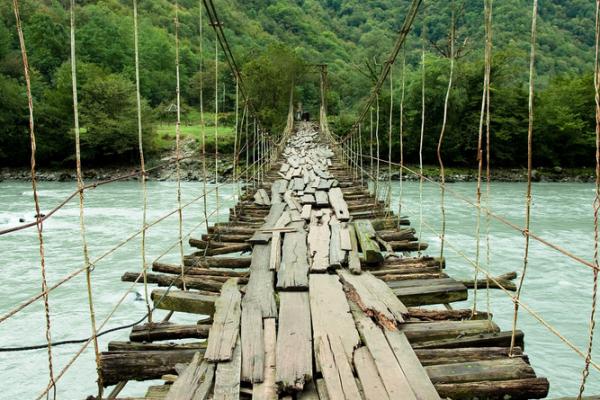Many people fear death. It’s an understandable fear. And one that’s socially acceptable.
But shouldn’t we also admit that living can be scary as hell, too?
As any fan of The Walking Dead and other apocalyptic fiction knows, it doesn’t take much for the lines between order and chaos, between civility and mayhem, and between trustworthiness and falsehood to be exposed as thinner than advertised.
We aren’t given a choice. We navigate a world in which we exercise little real control.
Co-pilots aren’t supposed to crash commercial jets.
States can't just grant individuals and businesses the right to discriminate against under-protected groups under some squishy definition of "religious freedom," can they?
We may never learn where those two-hundred-plus Nigerian girls were taken, the ones kidnapped from their school — their school! — nearly one year ago.
Why does NIMBYism derail so many good-faith and promising efforts to help rehabilitate released felons and other at-risk populations?
What part of the world that I can barely locate on a map has my country decided to bomb for me today?
Confidence and fear travel through our veins, compelling us, as they act out their odd, entangled relationship. We rarely have the luxury to see where our choices will lead us. We’re swept along by others’ choices and barely detectable forces.
Anxiety is more than a devious marketing strategy in cable news channels’ portfolios; it arises from life’s uncertainties. It’s a way our bodies ask whether we can trust those yearnings that give birth to our hopes for a society that truly flourishes.
Who doesn’t live by some kind of faith? Such “faith” can be a reliance on effort and intelligence, a willingness to surrender to risk, a retreat into the security of privilege, a decision to live for others, or a resigned acceptance that at least we’ll have company when disaster strikes. What, finally, compels us forward?
Read the Full Article

